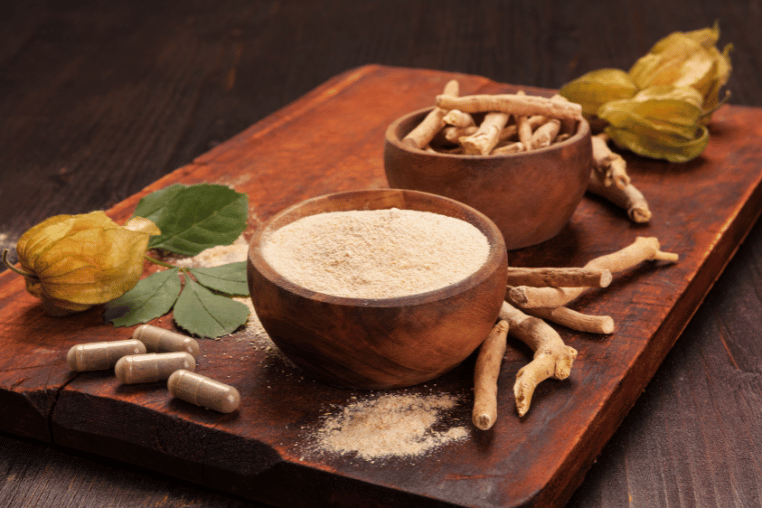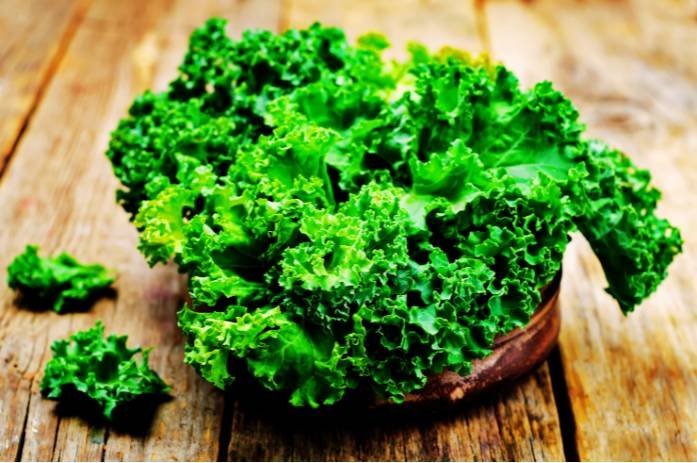
Professional Nutritionist
Introduction
Cabbage, with its vibrant colors and versatile culinary uses, is much more than just a vegetable that adds crunch to salads and coleslaw. This humble cruciferous vegetable is packed with an impressive array of nutrients and offers numerous health benefits. From boosting your immune system to promoting heart health and supporting digestion, cabbage is a nutritional powerhouse that deserves a prominent place in your daily diet. In this article, we will explore the incredible benefits of cabbage, understand its nutritional value in percentage, and discover simple and delicious ways to incorporate it into your meals.
The Nutritional Value of Cabbage
Before diving into the health benefits, let’s take a look at the nutritional composition of cabbage. This low-calorie vegetable is brimming with essential vitamins, minerals, and dietary fiber:
- Calories: Cabbage is remarkably low in calories, making it an excellent choice for those watching their weight. A 100-gram serving of cabbage contains approximately 25 calories.
- Carbohydrates: Cabbage provides about 5.8 grams of carbohydrates per 100 grams, constituting 2% of your daily recommended intake.
- Fiber: Cabbage is an exceptional source of dietary fiber, with about 2.5 grams of fiber in a 100-gram serving. This amounts to 10% of your daily recommended intake.
- Protein: While not particularly high in protein, cabbage still offers a small amount, contributing to a well-rounded diet.
- Vitamin C: Cabbage is packed with vitamin C, an essential antioxidant that supports the immune system and promotes healthy skin. A 100-gram serving provides a whopping 36% of your daily recommended intake.
- Vitamin K: This cruciferous vegetable is rich in vitamin K, which plays a crucial role in blood clotting and bone health. A 100-gram serving contains 52% of your daily recommended intake.
- Vitamin B6: Present in cabbage, this essential nutrient plays a crucial role in supporting brain development and enhancing its optimal functioning.
- Folate: Cabbage is a good source of folate, a B vitamin that is essential for cell division and growth.
- Calcium: Cabbage contains calcium, a mineral vital for maintaining strong bones and teeth.
- Potassium: This mineral is abundant in cabbage and helps maintain proper fluid balance, nerve function, and muscle contractions.
Health Benefits of Cabbage
- Boosts the Immune System
Cabbage is a nutritional powerhouse, and its high vitamin C content is a key player in supporting a robust immune system. Vitamin C found in cabbage shields the body’s cells from potential harm caused by free radicals. Additionally, it helps stimulate the production of white blood cells, enhancing the body’s ability to fight off infections and illnesses. - Supports Digestive Health
The fiber content in cabbage makes it a fantastic ally for maintaining a healthy digestive system. Fiber adds bulk to stool, aiding in regular bowel movements and preventing constipation. Moreover, cabbage is known to contain natural compounds that promote gut health and may help reduce the risk of digestive disorders. - Promotes Heart Health
Cabbage offers heart-protective benefits due to its rich potassium content. Potassium helps regulate blood pressure and counteracts the harmful effects of sodium, thus reducing the risk of hypertension and cardiovascular diseases. Additionally, cabbage’s fiber and antioxidants contribute to overall heart health by reducing cholesterol levels and preventing plaque buildup in the arteries. - Aids in Weight Management
If you’re aiming to shed some pounds or maintain a healthy weight, cabbage can be your ally. With its low-calorie content and high fiber, it keeps you feeling full and satisfied, curbing unnecessary cravings and overeating. Furthermore, cabbage’s water content helps keep you hydrated and supports your weight loss journey. - May Help Prevent Cancer
Cabbage belongs to the cruciferous vegetable family, known for its potential anti-cancer properties. It contains sulforaphane, a compound that has been studied for its ability to inhibit the growth of cancer cells and support detoxification processes in the body. While more research is needed, including cabbage in your diet can be a proactive step toward reducing cancer risk. - Supports Brain Health
The presence of vitamin K and anthocyanins in cabbage may have positive effects on brain health. Vitamin K is essential for brain cell function, and anthocyanins have been linked to improved cognitive function and memory. - Anti-inflammatory Properties
Cabbage contains antioxidants and anti-inflammatory compounds, such as quercetin and kaempferol, which help reduce inflammation in the body. Chronic inflammation is associated with various diseases, and incorporating cabbage into your diet may contribute to overall inflammation reduction. - Promotes Skin Health
Vitamin C, present in abundance in cabbage, plays a vital role in collagen production, a protein responsible for skin elasticity and firmness. Regular consumption of cabbage can help maintain healthy and youthful-looking skin and protect it from environmental damage.
Incorporating Cabbage into Your Diet
Now that we’ve explored the fantastic health benefits of cabbage, let’s discover some simple and delightful ways to include this versatile vegetable in your daily meals:
Classic Coleslaw
Prepare a refreshing coleslaw by combining shredded cabbage with carrots, mayonnaise, a splash of apple cider vinegar, and a pinch of sugar. This classic side dish pairs perfectly with grilled meats or sandwiches.
Stir-Fry Sensation
Create a colorful and nutritious stir-fry by sautéing sliced cabbage with an assortment of your favorite vegetables, tofu, and a savory stir-fry sauce. Serve it over steamed rice for a wholesome meal.
Sauerkraut
Fermenting cabbage to create a tangy and slightly sour dish. Shred the cabbage, and let it sit to flourish the beneficial bacteria, imbuing the cabbage with natural preservation powers. sauerkraut shines as a probiotic powerhouse, nurturing the gut’s well-being and promoting digestive health.
Kimchi
Season the cabbage with a mix of spices, such as garlic, ginger, and red pepper flakes, before allowing it to ferment. As the magic of fermentation takes place, the flavors intensify, giving kimchi its signature tangy, spicy, and umami-rich taste. This versatile condiment not only adds a burst of flavor to meals but also offers probiotic benefits, supporting a healthy gut and overall well-being.
Tangy Cabbage Soup
Simmer chopped cabbage with vegetable broth, tomatoes, and aromatic spices to make a comforting and nourishing cabbage soup. Enjoy it on a chilly day for a warming experience.
Quick and Easy Cabbage Salad
For a quick and healthy salad, toss shredded cabbage with fresh spinach, cherry tomatoes, cucumber, and your favorite dressing. Top it with some toasted nuts or seeds for extra texture.
Cabbage Precautions and Side Effects
Cabbage, with all its health benefits, is generally safe for consumption. Nevertheless, it is essential to be mindful of a few precautions. For some individuals, eating raw cabbage in large amounts may lead to gas and bloating. To avoid this discomfort, try cooking the cabbage or opt for fermented varieties like sauerkraut.
Thyroid Concerns
If you have thyroid issues, it’s essential to be cautious with cabbage. Cabbage is rich in goitrogens, compounds that have the potential to affect thyroid function. The good news is that cooking cabbage can help reduce the goitrogenic compounds, making it safer for those with thyroid conditions.
Moderation is Key
As with any food, moderation is key. While cabbage is nutritious, consuming it excessively may lead to digestive issues or interact with certain medications. It’s always best to enjoy a well-balanced diet and consult with a healthcare professional if you have specific health concerns.
Individual Reactions
Each person’s body is unique, and some individuals may be more sensitive to certain foods, including cabbage. If you experience any unusual symptoms after eating cabbage, such as allergies or digestive discomfort, it’s best to discontinue its consumption and seek medical advice.
Quick Recap
In conclusion, cabbage is a superfood that boasts an impressive nutritional profile and a wide range of health benefits. From strengthening the immune system and promoting heart health to supporting digestion and enhancing skin radiance, this unassuming vegetable has earned its place on our plates. By incorporating cabbage into your regular meals, you can reap the abundant rewards it offers while savoring its delightful taste and versatility.
FAQs (Frequently Asked Questions)
Both raw and cooked cabbage have their merits. Raw cabbage retains more vitamin C, while cooked cabbage is easier to digest and releases other nutrients.
Yes, cabbage is a low-calorie, high-fiber vegetable that can aid in weight loss by promoting a feeling of fullness.
While cabbage is generally safe for most people, excessive consumption may cause gas or bloating in some individuals. Moderation is key.
Yes, you can blanch and freeze cabbage for later use in soups and stir-fries.
Yes, applying fresh cabbage juice to the skin can promote healthy skin due to its high vitamin C content and antioxidant properties























